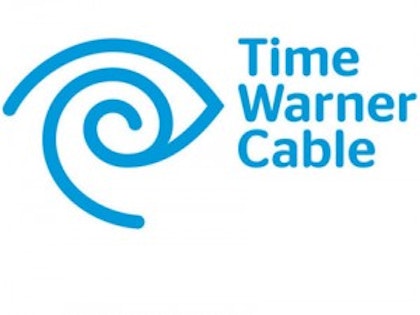
Here I chose two companies that should be hurt from the coming scenario as well as one company that should largely benefit from it.
Two losers within the current credit context
Time Warner Cable Inc (NYSE:TWC), the US cable operator, shares all the characteristics that I am looking for. The company has a net debt to EBITDA above three times, negative earnings revisions and negative correlation with the ISM index (which is a proxy for operational leverage). Even when the company is a good cash flow generator (its free cash flow yield is 8.4%) and pays a good 2.7% cash dividend yield, I think the company is overly exposed to rising bond yields. Besides, higher CapEx needs and a higher churn are motives for concern. Trading at 2013 15.6x P/E I would sell Time Warner Cable Inc (NYSE:TWC).
Oneok Partners LP (NYSE:OKS) owns an interstate pipeline system that transports natural gas. The company not only has a negative 49% correlation to the ISM index. It also has a net debt that represents 4.65 times the company’s expected EBITDA. Oneok Partners LP (NYSE:OKS) has a fee-based business model built on assets secured by long term contracts. Hence, the company’s cash flows are low-risk, and the company resembles a perpetuity bond with its coupon tied to gas prices. Paying a 5.7% cash dividend yield, I think Oneok Partners LP (NYSE:OKS) shares are at risk in the context of rising bond yields.
One potential winner
As I mentioned before, companies with high pension deficits should benefit from rising bond yields. The Boeing Company (NYSE:BA) is not only a correctly managed organization that owns a business with huge barriers to entry. The company also has enormous pension obligations. The Boeing Company (NYSE:BA)’s pension obligations represent 36% of the company’s total market capitalization. Besides, the company’s earnings are positively correlated with the ISM index, and its valuation looks compelling at 16 times earnings. The Boeing Company (NYSE:BA)’s net debt to EBITDA is extremely low at 7%, and its 6% free cash flow yield (the company pays a growing 1.9% cash dividend yield) make it a great candidate when thinking of companies that will benefit from higher bond yields.
Bottom line
The main idea behind my proposition is that bond-like stocks (low expected growth but high dividend yields) represent a risk as bond yields rise. Why would you hold a company with low expected top-line growth if you could get a comparable return by investing in high grade bonds? That said, there are some opportunities that arise as yields go up. Companies such as The Boeing Company (NYSE:BA) or Caterpillar Inc. (NYSE:CAT) will not only benefit as the US economy improves. They will also benefit since their future long term obligations (pension obligations), which are huge, can be discounted at higher rates. Yields are rising–your portfolio should be prepared.
Federico Zaldua has no position in any stocks mentioned. The Motley Fool recommends Oneok Partners LP (NYSE:OKS).
The article You Should Keep Your Eyes Focused on Credit originally appeared on Fool.com.
Federico is a member of The Motley Fool Blog Network — entries represent the personal opinion of the blogger and are not formally edited.
Copyright © 1995 – 2013 The Motley Fool, LLC. All rights reserved. The Motley Fool has a disclosure policy.





